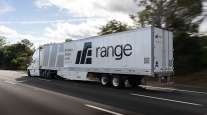Senior Reporter
CARB Certification Required for Trailer Makers to Sell in California
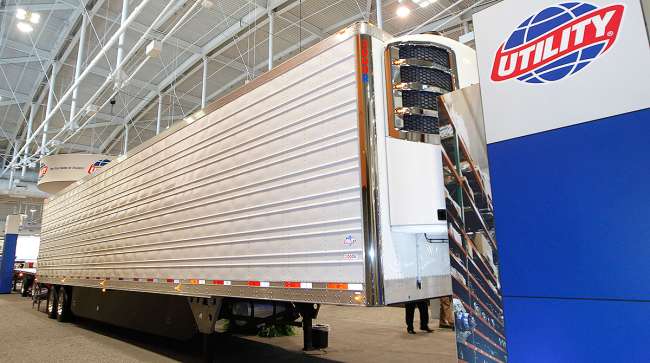
To be able to sell trailers in California beginning Jan. 1, trailer makers must certify the equipment meets the state’s greenhouse gas emission standard and be approved by the state’s Air Resources Board.
“The deadline is coming up very soon, and it seems a lot of loose ends need to be tied up very quickly,” said Frank Maly, ACT Research’s director of commercial vehicle transportation analysis and research.
One trailer maker noted industry sales in the state were substantial.
“California is a big market, but depending on the actual language in the regulation, that may change,” said Craig Bennett, senior vice president of sales for Utility Trailer Manufacturing Co.
Bennett said he was waiting for CARB’s official release on the regulations later in April. Utility is based in City of Industry, Calif.
San Diego-based Hyundai Translead has no issue with the GHG emission requirements, Chief Sales Officer Stuart James said. Its main concern is how to define “sold.”
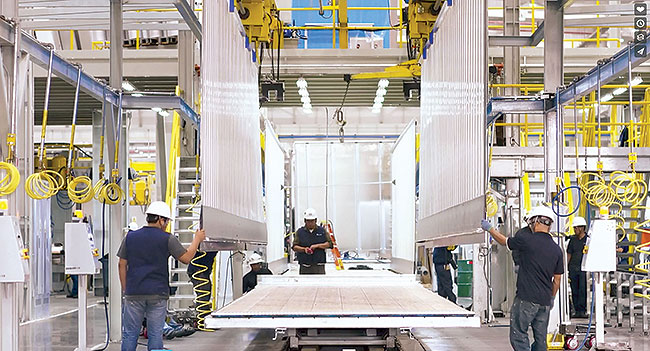
Workers assemble a trailer at a Hyundai Translead plant. (Hyundai Translead corporate video via Vimeo)
“If sold means ‘intended to operate’ in California that is one issue. But if it means delivered or invoiced in California, that is quite another. Many, possibly most, of our trailers are handed to a customer in the state but are removed and placed in interstate commerce within 30 days, thus avoiding state sales tax,” he said. “We are asking CARB to confirm that same rule will apply.”
While trailer manufacturers are responsible for meeting the requirements, fleets will be responsible for “ensuring the technologies listed on new trailer emission labels are maintained on the trailers for their 10-year useful life,” said Mike Tunnell, director of environmental affairs for American Trucking Associations.
Tunnell said another issue was how the emission warranty must match any structural warranty on the trailer.
“The minimum [warranty] is five years on emission components and one year on tires. If a manufacturer provides anything longer on the trailer, it carries over to the emission components, other than tires. I’m not sure whether this might serve to limit the length of the structural warranty,” he said.
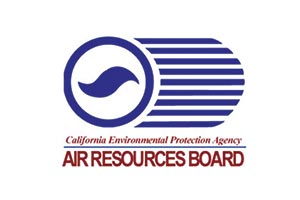
The state’s GHG Phase 2 rule establishes carbon dioxide emission standards for — in combination with tractors — dry van and refrigerated van trailers of all lengths, flatbed trailers, tank trailers and container chassis, as CARB discussed at a March workshop.
“This California rule that is upcoming is literally just the Environmental Protection Agency’s Phase 2 rule [for trailers] of 2016. That’s my understanding of it,” said John Freiler, engineering manager for the Truck Trailer Manufacturers Association.
EPA’s Phase 2 included trailer rules for the first time, as only trucks and their engines had been regulated. A federal appeals court has issued a stay on EPA’s trailer rule.
Manufacturers must also register for their own unique manufacturer code assigned by EPA before submitting their package, CARB noted.
Most dealers already are selling van trailers with low-rolling-resistance tires and side skirts, said Steve Lujan, territory sales manager for Central California Truck & Trailer Sales in Shingle Springs, Calif.
“So the additional piece [to lower emissions more] is adding tire-inflation systems,” he said.
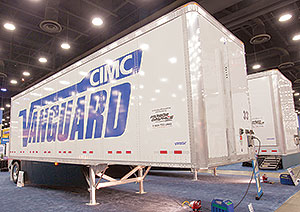
Vanguard trailers on display at an industry show by John Sommers II for Transport Topics.
The company is a dealership for Vanguard National Trailer Corp., Dorsey Trailer and Landoll Corp.
“But I have fleet customers who will not spec a tire-inflation system [due to the cost]. So then I am going to have to get with the manufacturer and figure out how do I meet that [lower emission standard] by doing something different,” Lujan said.
“Is it running a tail on the end of the trailer, lightening up the specs on the floor or the walls? I don’t know. This is all going to be a challenge for us,” he said.
Or, Lujan suggested, some buyers may go to purchase trailers in a neighboring state.


